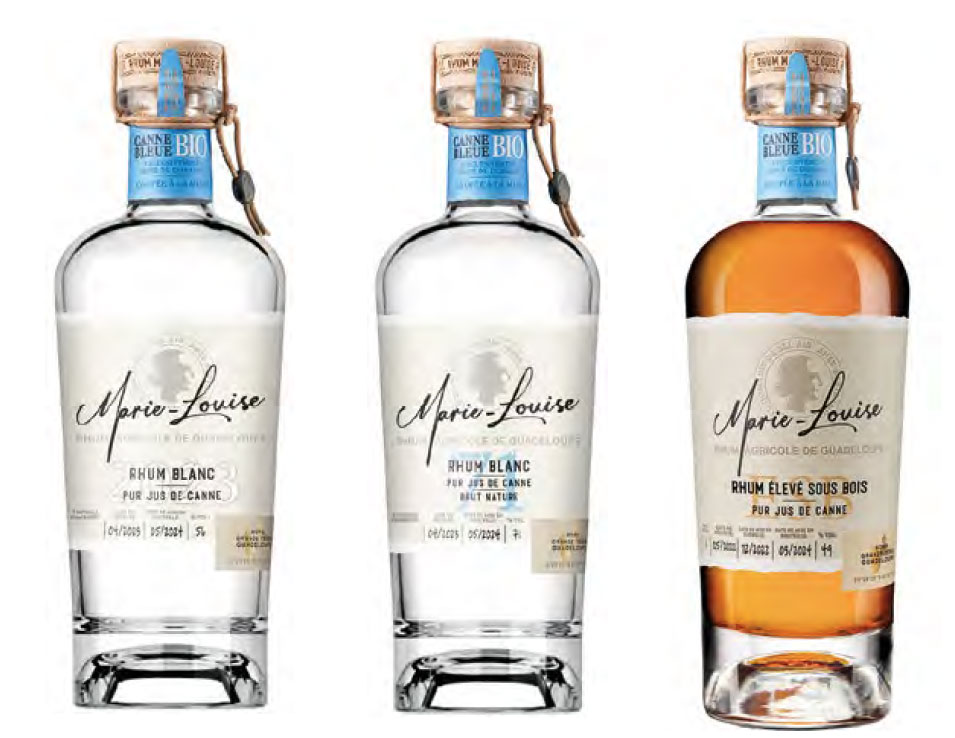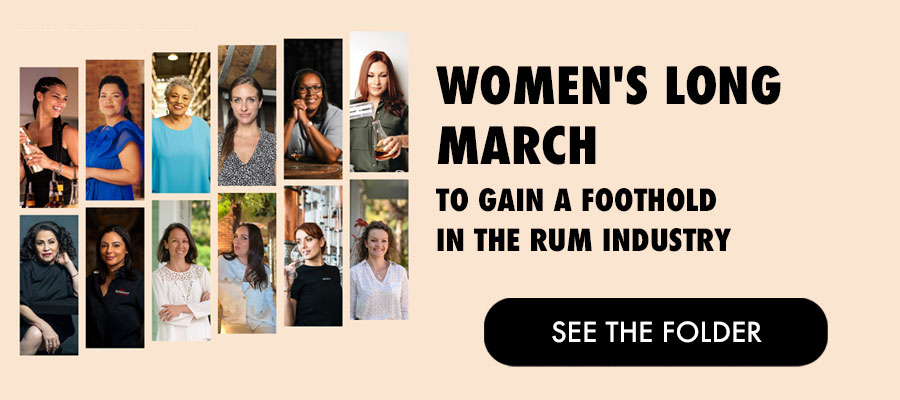After an initial career in wine, Anna Ostrovskyj turned her attention to rum. Thank goodness! She has been involved in the heyday of Remoneniq, Père Labat, and more recently Marie-Louise!

Were you easily accepted by your male colleagues?
Not at first: I tend to be shy and I know I’m easy on the eye, so I’m often put down, considered too distant or too accessible. I try to overcome all that with my kindness, my competence and concrete facts, and I’ve always managed to overcome this obstacle, to the point of earning the respect of my male colleagues.
What’s more, they quickly understand that my environment is not so much the limelight as the distillery, and that I work by helping others and enjoy the spirit of collaboration.
When you started out, were there many women in the rum industry?
A few, including a great friend and mentor, Virginie Pouppeville, in the field of agricultural rum, as well as others (more, in fact) in the world of English and Spanish rum. Generally little known and very discreet, with the exception of the ‘very well known’ ones, such as Joy Spence, for example.
Are there more of them today?
I would say that they have been given more prominence, but yes, I think there are more: many figures are a source of inspiration for the younger generations.
What types of jobs do women hold?
Today, in the rum industry in general, many women hold organisational, administrative, training and ambassadorial positions; few hold management positions, and even fewer hold technical positions, as in my case. In Guadeloupe, the situation is exactly the same for agricultural rum.
Do you think women really hold positions of power in the rum industry?
Some (very, very few) do, but rarely in the world of agricultural rum, which is small and deeply rooted in tradition.
What could be done to encourage women to pursue careers in the rum industry?
Positive and authentic role models of women of value should be promoted, training opportunities should be provided (also through financial aid and scholarships; I paid for all my studies myself with difficulty, but I always want to be the best I can be for my clients and my work, so for small businesses, assistance with training and equipment is very important), and finally, career opportunities offered by distilleries and entrepreneurs, as well as creating a desire in companies to have the opportunity to work with inventive, creative, technically competent and resourceful women will make a difference, as will, ultimately, for us, being paid as much as our male colleagues for the same job.
Have you ever encountered sexist behaviour and/or harassment in the course of your work and travels?
I wouldn’t say I’ve encountered outright sexism (words, attitudes), but I would say that demeaning behaviour and making things difficult for me are commonplace.
Is there a ‘feminine’ way of producing rum?
Yes, there is, and we demonstrate it every day: every woman has much more developed sensory abilities than her male colleagues, as well as an equally remarkable olfactory and gustatory memory.
For me, this is reflected in the work of creating the vintages for which I am responsible. In addition to this ability, which triggers very precise sensory thresholds, creativity and sensitivity are fundamental, from the raw material to its transformation, through fermentation, distillation, maturation and blending.
Women are naturally capable of deeply understanding the nature of a material and its evolution: I deeply believe in this unknown and wonderful power.
We give birth to creatures and nurture them with our technical and social skills, we compose symphonies to lull them to sleep, and finally, when they are born, we are proud of their existence. For me, the creative act is the most beautiful moment of work, even if I am sweaty and dirty, or if I have been on my feet for hours.


